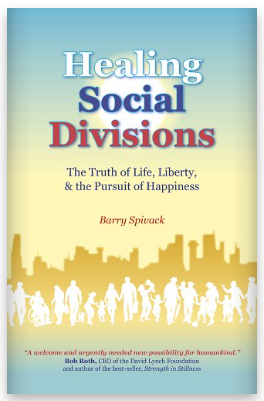The Up Deeds blog
Our blog posts are created by those that share the same call to give back to others. We give them the full credit they are due, and links so you can benefit from other information they share.

Healing our Division
Healing the Divide – Two Keys to Repairing Our Polarized Culture
by Connie Habash | Articles, Challenges, Communication, Healing, Listening, Perspective, Polarities
We’re challenged with our differences these days – they have caused a great divide in our world. Polarization appears to be intensifying, and it’s difficult to have conversations with people of opposing views. Here are two keys to turning things around so that we can listen as well as communicate and resolve the national and planetary problems together.
The other day, someone said to me that they felt despair about the divisiveness in the United States and the world. It was hard to have any conversations about things that mattered without conflict and anger.
It’s true that there are many strong opinions about a plethora of issues we’re facing: the pandemic, vaccinations, climate change, immigration, the economy, the police and law, diversity and racial equality, just to name a few hot topics. It appears that we’re drifting further apart from our differently-opinioned neighbors (and even our primary relationships!), whether in another part of the world or right next door.
It’s easy to become despondent and believe that it’s hopeless. And if we continue in the same direction, with the same attitudes and perceptions, maybe it is. But it doesn’t have to continue on the track we’ve found ourselves on.
I obviously don’t have all the answers, but I do have two – two ways that I feel are essential to healing the divide between ourselves and others who don’t share our points of view. These two principles lay a foundation for repair of our polarized culture.
Similarities Connect – Differences Enrich
The first principle lays the groundwork for how communities, from a small support group or even a partnered couple to a large congregation, build meaningful, connected relationships with one another: similarities connect – differences enrich.
We connect over our similarities. These are activities, tastes, values, cultural backgrounds, politics, and even our flaws and blunders in life. In a 12-step group, the sense of connection comes largely from shared similar experience of addition to a substance or a relationship. At a church, synagogue, mosque, or temple, it’s a common belief, and at a protest it’s a shared struggle or principle we stand for.
By sharing our more vulnerable side, we also find commonality in our suffering, challenges, and life experiences. A grief support group works because everyone understands the pain of loss, so there’s a common language. People of color know that other people of color “get it” about racism.
But similarity is only one half of the first principle. Because if we only had similarities, the homogeneity of the group would eventually be a bit flat. Differences of opinion, while at times frustrating or annoying, spark conversation, contemplation, and growth.
We need differing points of view, as long as they aren’t terribly oppositional. If we aren’t exposed to other perspectives, we don’t grow in our understanding of life and the world. It’s as if we lived in the same valley our whole lives. We might know that valley very well, and then assume the entire rest of the world outside that sheltered, verdant land looked the same. How wrong we would be, and how woefully unprepared we would be should we need to leave the valley and move elsewhere.
When you encounter someone who has similarities, celebrate those connections. And when you discover the differences – which inevitably you will – learn to welcome them. Which can be a tall order when you find yourself faced with an adversary. But those very challenging differences can enrich your understanding of the world. In fact, that’s how transformational change usually happens, is when those differences meet one another.
When You Encounter Differences
Encountering others who are very different from you can trigger a lot of reactions. We may feel defensive, unsafe, and scared. We also can become very righteous; we believe that our point of view is the right one (and I’m sure that it is! 🤣).
But having a righteous point of view doesn’t usually result in harmonious relations and resolutions that work for the greater good. So what can you do to better respond, rather than react, to people with different values, perspectives, backgrounds, upbringings, and experiences?
Convincing to Understanding
You can practice the second principle; to shift from convincing to understanding.
We’ve all fallen into the trap of believing that when we have a disagreement with another, we must convince them of our stance. We have to show them the truth! They will clearly see, after we have explained everything, that we are right and if they just changed all would be well.
Yeah, you know how well that goes over, don’t you? Because you’ve probably been on the receiving end of that, too, and didn’t appreciate the sermon.
The way through this dilemma is shifting out of the convincing mentality. Often, we feel compelled to convince because we fear that if we don’t, our point of view will be run over. We’ll lose our ground, our power, our stance in the family or the community.
The surprising thing is that the very clenching to being right is what perpetuates the loss of power in the relationship. We think that standing strong in our opinion will save the day, but it ends up ruining the connection. It emphasizes the polarization of viewpoints and tears down what sense of unity through commonality there may have been.
Give Them a Bit of What They Want
The shift from convincing to understanding gives others a bit of what they want. And I don’t mean that you’re giving them their way, or allowing others to do things that you don’t feel right about.
What I mean is that all of us long to be understood – maybe even more than being agreed with (although that is quite debatable!). We want someone to be able to listen to us, take our perspective seriously, respect us, and really get where we’re coming from.
It’s possible to understand without agreeing. I remember listening to a well-known activist talk about how she used to meet with oil companies with her guns blazing. Those meetings didn’t turn out well. But when she went in willing to listen, to understand what those companies wanted and their priorities, then they were willing to listen to her, too, and negotiations were more fruitful.
Understanding Returns Us to Similarities and Connection
Surprisingly, when we are willing to understand rather than try to convince, we circle around to find our similarities. We all want health, success, respect, and happiness. We all have met with challenges, pain, and struggle. Most of us want harmony and peace with one another. By listening, with open minds and hearts, we can discover what we share in common. That creates more connection, which supports finding resolution between disparate perspectives.
Remember that differences enrich us. We learn so much more from new information and points of view, and it can clarify our own perspectives. An attitude of interest and curiosity about those differences will open doorways of connection and understanding.
It takes a lot more than these two principles, but the foundations of “similarities connect – differences enrich” and “shift from convincing to understanding” are essential to the process of mending the rifts in our world. Explore how you can practice these principles in your partners, family, friends, neighbors, and community, and let me know what you discover. Together, we can rebuild the bridges that have burned down and heal the divide in the world.
https://www.awakeningself.com/healing-the-divide-two-keys-to-repairing-our-polarized-culture/
A book you may want to consider on the topic.
Your purchase also supports independent bookstores.
Tap image and find it in the politics sections.

